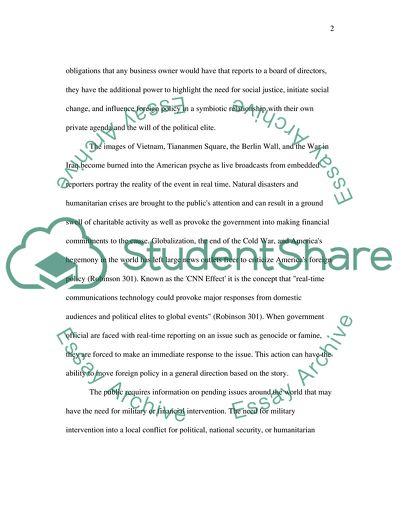Cite this document
(The CNN Effect - Fact or Fiction Essay Example | Topics and Well Written Essays - 1500 words, n.d.)
The CNN Effect - Fact or Fiction Essay Example | Topics and Well Written Essays - 1500 words. https://studentshare.org/media/1708104-the-effect-of-the-media-in-foreign-policy
The CNN Effect - Fact or Fiction Essay Example | Topics and Well Written Essays - 1500 words. https://studentshare.org/media/1708104-the-effect-of-the-media-in-foreign-policy
(The CNN Effect - Fact or Fiction Essay Example | Topics and Well Written Essays - 1500 Words)
The CNN Effect - Fact or Fiction Essay Example | Topics and Well Written Essays - 1500 Words. https://studentshare.org/media/1708104-the-effect-of-the-media-in-foreign-policy.
The CNN Effect - Fact or Fiction Essay Example | Topics and Well Written Essays - 1500 Words. https://studentshare.org/media/1708104-the-effect-of-the-media-in-foreign-policy.
“The CNN Effect - Fact or Fiction Essay Example | Topics and Well Written Essays - 1500 Words”. https://studentshare.org/media/1708104-the-effect-of-the-media-in-foreign-policy.


